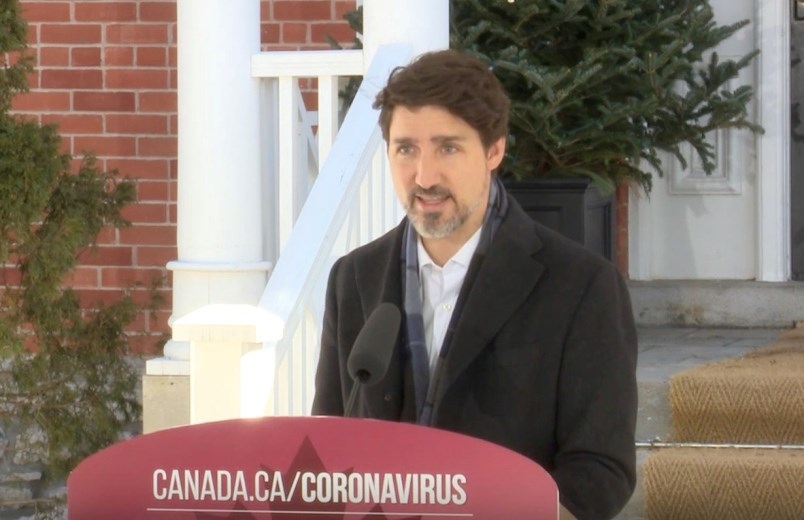Canada is not yet in a position to enforce the federal Emergencies Act, said Justin Trudeau, in his latest address concerning Canada's response to the COVID-19 outbreak on March 22.
The federal government will continue to work with provincial and municipal leaders to encourage social-distancing and self-isolation to slow the spread of the virus, said Trudeau. Federal intervention remains a last resort.
"The federal Emergencies Act is a significant step that can and should be taken when we've exhausted all other steps at other orders of government and the legislation and regulations available to the federal government are insufficient to respond to the situation at hand," he said.
"We're not at that stage yet but we're looking very carefully at the situation to see if that will be needed."
The House of Commons will reconvene Tuesday, March 31, to vote on measures to ease the burden of COVID-19 on businesses and employees across the nation, he went on to say. The focus being mobilizing industry in the production of personal protective equipment (PPE) and making it easier for individuals to qualify for employment insurance.
Trudeau said there has been a "tremendous response" from companies in retooling their production lines to produce medical supplies.
"We can assure companies that produce these things that we need them and we will use them."
Parliament was been closed since March 13, in observance of the recommendation to practice social distancing. According to the rules of the House, a minimum of 20 MPs must be present including the speaker.
To support Canadians during this time, Trudeau said the government has launched an $82-billion plan to help people in businesses who have fallen on "hard times" as a result of COVID-19. This includes boosting the Canada child benefit, introducing new benefits for those who don't qualify for employment insurance, and supplementing the GST credit.
This funding follows a $27-billion direct investment in the economy earlier this month, to support small businesses and employees across the nation. It will not be the last, said Trudeau.
"That was only the initial phase of what is necessary...to ensure that our economy remains solid, if at a standstill, so it can pick up again once this crisis is through."
All options are being considered in this regard, he said.
With respect to those stranded abroad, Trudeau said Canadians can expect more information on emergency flights in the coming days.
He acknowledged that the process has many Canadians scared and searching for answers. But assured the public that civil servants are working around the clock to provide Canadians with the "assistance (they) deserve."
"We will not abandon you, you can rely on us," said Trudeau, in reference not only to the efforts of Foreign Affairs Canada but the $5,000 per person in supports announced Saturday.
But with 3-million people out of the country at any given time, he said not everyone will be able to or have a desire to return home at this time.
It has been "several weeks" since Canadians were encouraged to self-isolate and practice social-distancing to help slow the spread of COVID-19 and for those following the recommendation, Trudeau expressed his sincere thanks.
"We each have the opportunity to flatten the curve of this virus and protect our communities and we absolutely must do that."
As to when Canadians can expect life to return to normal, the Prime Minister couldn't say.
The government is taking the advice of researchers across the globe and is closely monitoring the response of other countries to determine the best course of action.
With this in mind, he said self-isolation and mass-testing will remain the primary strategy for the coming weeks.
"I wish anyone could give a date at which point this will all be behind us but that really depends, not just on what we do today, but we keep doing tomorrow and into next week and into next month."
Find more information on the federal Emergencies Act here.
